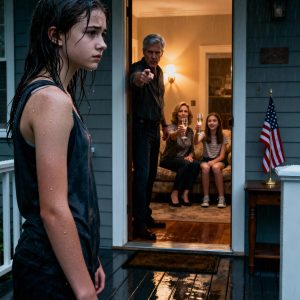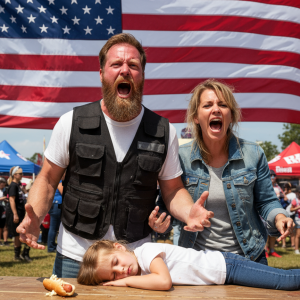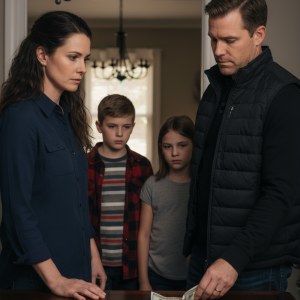Adam always packed light—a neat carry‑on, crisp shirts, a smile that said routine. So when he kissed my forehead and said, “Portland, back Sunday,” I clocked it as another forgettable itinerary.
But Friday afternoon the kids’ soccer tournament got canceled, and the lake house beckoned with its promise of pine‑scented calm. I loaded snacks, blankets, and a last‑minute playlist, steering north with two chattering copilots.
We reached the gravel drive just before dusk—and froze. Adam’s car sat there, windows fogged, like a secret caught mid‑breath.
Heart knocking, I shepherded the kids inside, then slipped out the back door. Beyond the willow trees, a lone figure swung a shovel, dirt arcing like black confetti.
“Adam?” My voice cracked the hush. He spun around—face streaked with sweat and something rawer: fear.
Words tumbled out. No Portland. No sales meeting. Instead, a half‑remembered tale from his ailing father: that Adam’s great‑grandfather, Samuel, had been denied a churchyard resting place after a scandal, laid instead in secret soil by this very lake.
At first, Adam brushed it off as dementia’s echo—until guilt and curiosity welded together. He took a personal day, drove up here, and started digging where the willow shadows crossed like compass needles.
I stepped closer, pulse drumming. The hole was waist‑deep, an earthy wound smelling of damp moss and ancestral silence.
Then—the scrape of metal against something softer. Adam knelt, fingers trembling, and unearthed coarse linen wrapped around brittle bones. A century of secrecy exhaled.
He unspooled the rest of the story: Samuel had fallen for a married woman. When whispers turned to ruin, he died in disgrace. She laid him here, near the water they’d shared in stolen afternoons—her final act of devotion.
Adam’s voice cracked: “I didn’t tell you because… what if it was nothing? I didn’t want to drag you into more family ghosts.”
We called the authorities, explained the century‑old puzzle. Investigators confirmed human remains, age consistent with Samuel’s era. History’s ledger balanced at last.
Weeks later, we held a modest service overlooking the lake. A plain cedar box, a bouquet of wild lilies, and four generations of descendants braving wind and truth together.
As the minister spoke, tears blurred my view. Our daughter tugged my sleeve and whispered, “Mom, why are you crying?”
“Because love,” I told her, voice unsteady, “even buried under a hundred years of secrets, still matters.”
Driving home, I realized we’d unearthed more than bones. In choosing truth over silence, we’d granted Samuel the dignity he was denied—and reminded ourselves that healing begins where honesty meets remembrance.
Moral
Some stories refuse to stay buried. When we face them—shovel in hand—we uncover not just the past, but the timeless power of love, truth, and closure.





